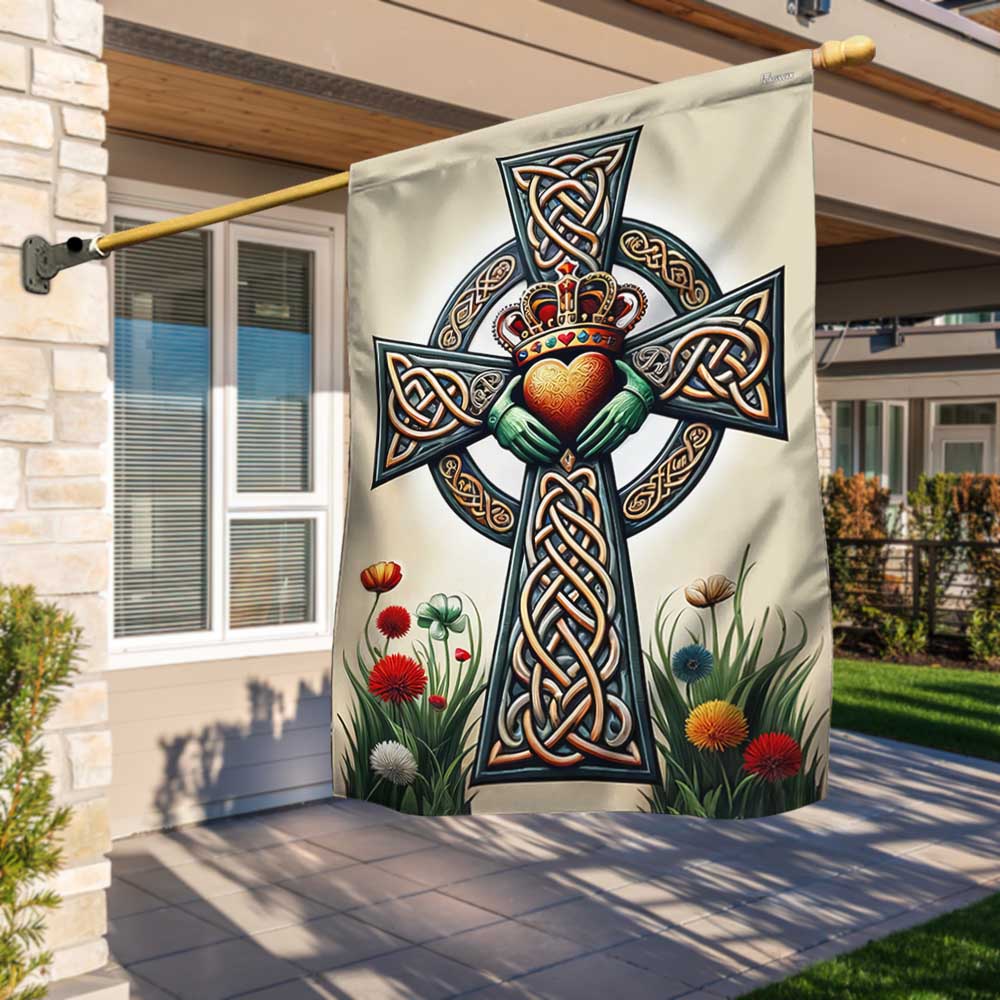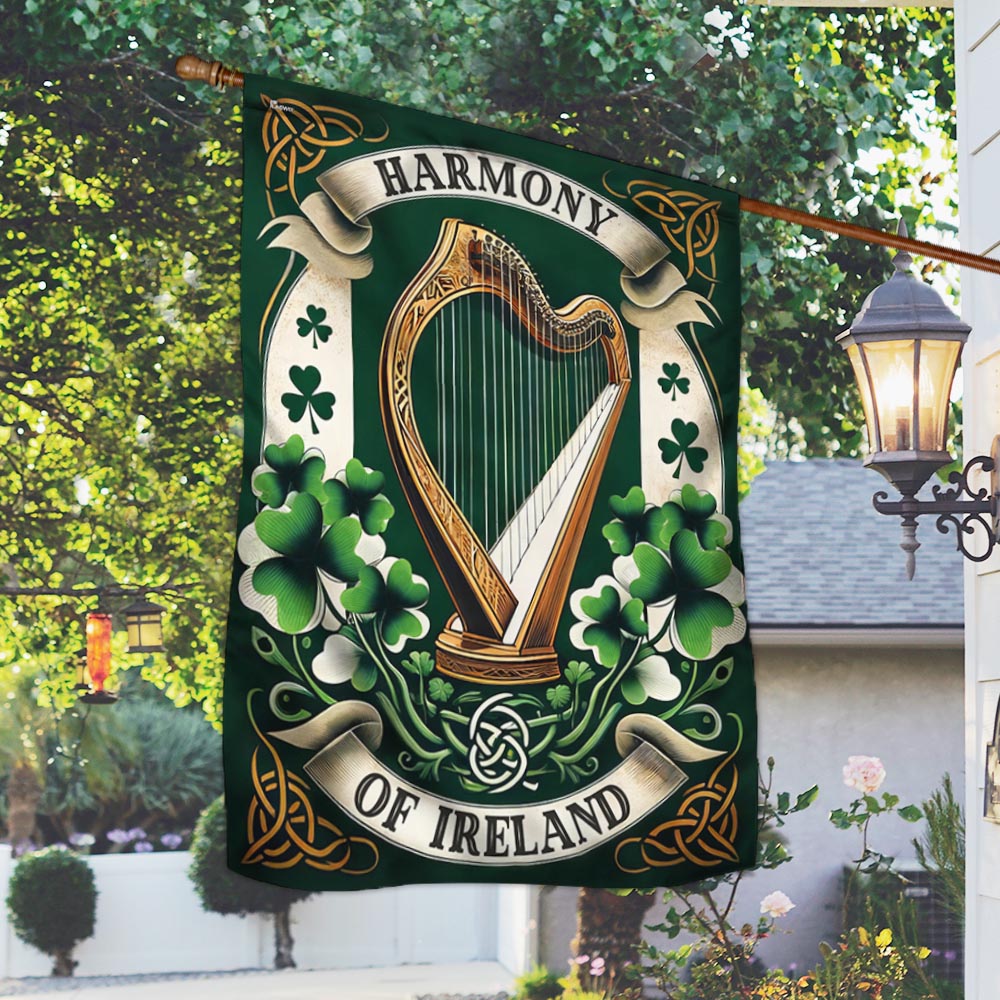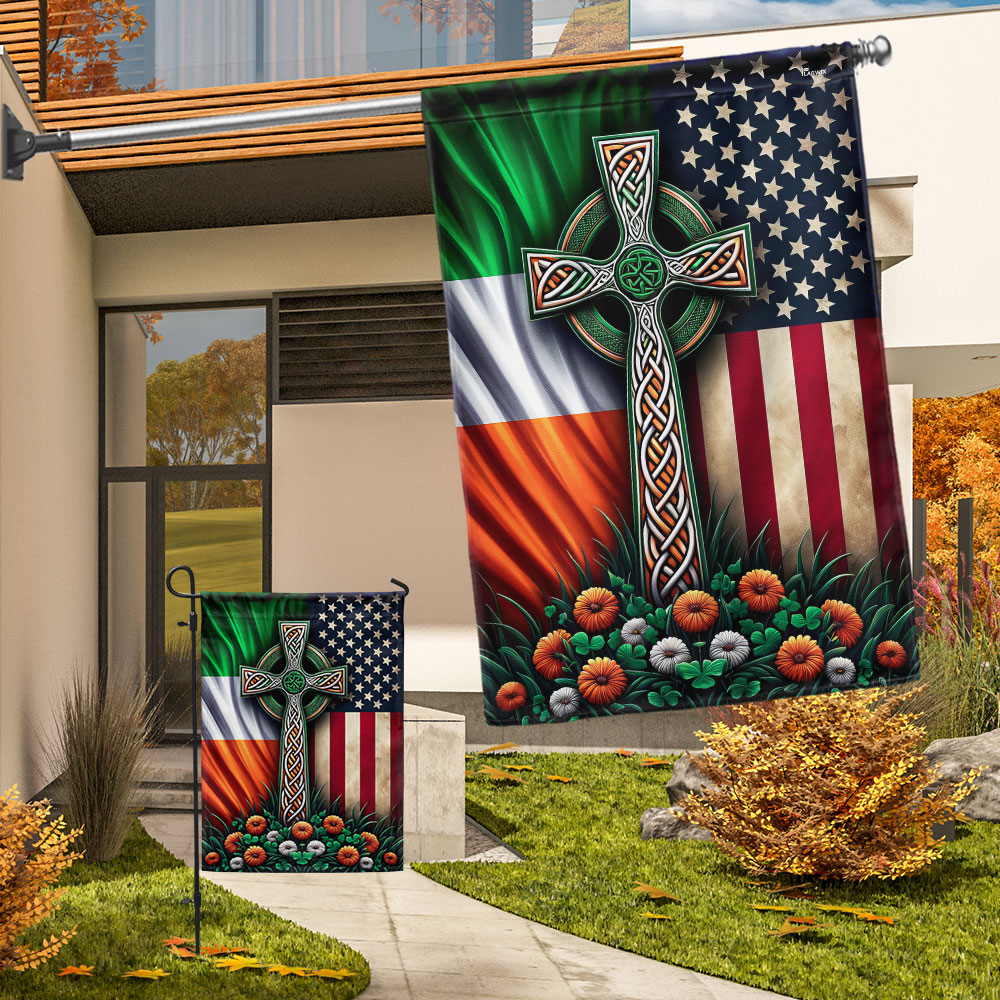🌍 Introduction: The Confusing World of the Green White Orange Flag
Flags say a lot without saying a word — and when it comes to a green white orange flag, it’s easy to get turned around. Ireland? Ivory Coast? Or some other country altogether?
If you’ve ever searched “green white orange flag” and felt more confused than before, you’re not alone. A lot of flags share similar color schemes — and while they may look alike, they often tell completely different stories.
This blog dives into:
Which countries use green, white, and orange in their national flags.
The meanings behind the colors.
Key differences in orientation (vertical vs. horizontal).
Other flags that often get mixed up.
Let’s untangle the tricolors once and for all.
Every St. Patrick’s Day in Ireland, you’ll see green, white, and orange flags flying alongside Celtic symbols. While it’s easy to recognize these flags as Irish, their similarities to flags of other countries might leave you wondering: What do the different versions mean? Where do these flags come from, and what stories do they tell?
Discover our collection of Irish flags
Explore Perfect Saint Patrick’s Day Flags to Celebrate Irish Pride
Contents
- 1 🌍 Introduction: The Confusing World of the Green White Orange Flag
- 2 Which national flags are orange, green, and white?
- 3 #1 - Flag of Ireland: The Most Famous Green White Orange Flag
- 4 Other Nations with Green, White, and Orange Flags
- 5 #2 - Ivory Coast Flag: The Reverse Tricolor
- 6 #3 - Indian Flag: A Horizontal Green White Orange Flag With a Twist
- 7 🏳️ Other Flags That Look Like the Green White Orange Flag
- 8 Green, White, and Orange Flags with Symbols
- 8.1 🌈 Why Do So Many Flags Use Green, White, and Orange?
- 8.2 ❓FAQs – People Also Ask about green white orange flag
- 8.3 1. What flag is green white and orange with vertical stripes?
- 8.4 2. Which flag is green white and orange horizontally?
- 8.5 3. What’s the meaning behind the green white orange flag of Ireland?
- 8.6 4. What other flags have green and white?
- 9 🔚 Wrapping Up the Green White Orange Flag Mystery
Which national flags are orange, green, and white?
We see flags every day, but how much do we know about their history, symbolism, and cultural significance? A closer look at green, white, and orange flags reveals diverse origins and meanings. Let’s uncover the stories behind some of the most notable flags featuring these colors.
The green, white, and orange flag is most commonly associated with the national flag of Ireland, also known as the Irish Tricolour. However, there are variations of tricolor flags with symbols in the center that represent specific organizations, historical movements, or cultural identities. Let’s explore the significance and variations of these flags.
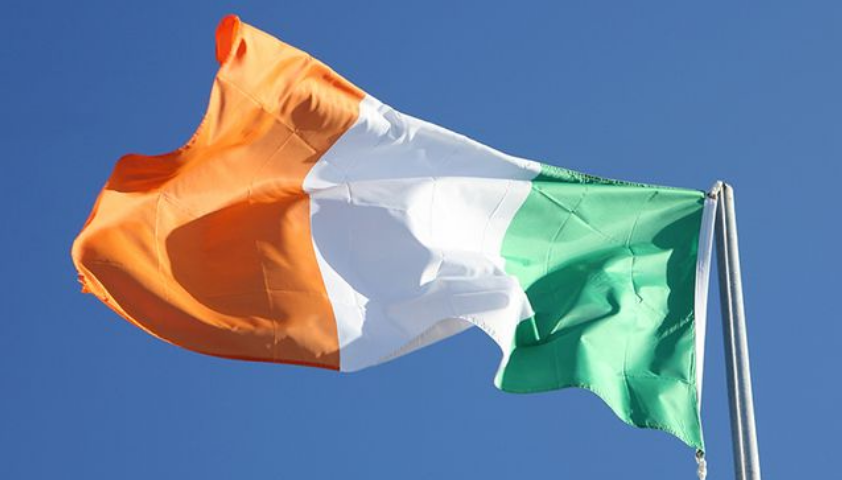
#1 - Flag of Ireland: The Most Famous Green White Orange Flag
🟩⬜🟧 Vertical stripes — Green | White | Orange
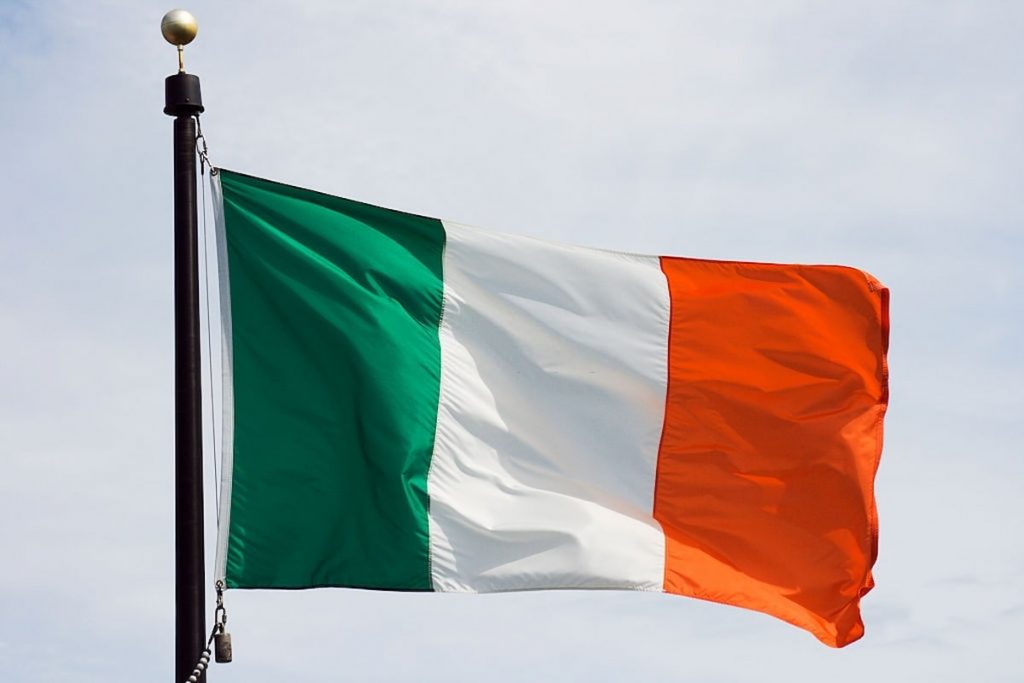
Ireland’s flag is the most widely recognized green white orange flag in the world.
Symbolism:
Green: Irish Catholics and the country’s nationalist tradition.
Orange: Irish Protestants and the followers of William of Orange.
White: Hope for peace between the two.
📜 Introduced: 1848, officially adopted in 1937.
💡 Did you know?
Ireland’s flag is often mistaken for Ivory Coast’s — they share the same colors, but the order is reversed!
Historical Background
The flag was first raised publicly in Waterford City in 1848 by Thomas Francis Meagher , a leader of the Irish nationalist movement. Inspired by the French Tricolour, Meagher introduced the Irish flag as a symbol of harmony between Catholics and Protestants.
During the Easter Rising (1916), rebels used a version of the flag with “Irish Republic” emblazoned in the center, representing their fight for independence. Today, the Irish Tricolour continues to symbolize unity and national pride.
This act was an occasion to commemorate the revolution that had just taken place in France.
Returning from France to Dublin on April 15, 1848, Meagher brought along the national flag in silk he had received from a group of French women. He then represented it to the Irish citizens. At the time, the white in the center symbolizes the lasting truce between France and Ireland. Green signifies Irish Republicanism. And the orange represents Protestants.
Long after that, the white color on the Irish flag was expanded with many layers of meaning for the Irish settlers. Specifically, now the White symbolizes the hope of a lasting peace between the two Irish cultures (Irish Catholics as the Green and Irish Protestants as the Orange).
Thus, the tricolor Irish flag symbolizes hope for integrating different beliefs in the nation.
FLAGWIX Irish Celtic Claddagh Cross Flag
Shop: Flagwix
Price: $39.95 $49.95 (You saved 20% this time)
Celebrate Irish heritage with this symbolic flag featuring traditional emblems of Love (heart), Loyalty (crown), and Friendship (hands), complemented by a Christian cross for faith. Perfect for any proud display, this flag beautifully represents Irish values. Order now to embrace the spirit of Ireland.
FLAGWIX Irish Harp Harmony of Ireland Flag
Shop: Flagwix
Price: $39.95 $49.95 (You saved 20% this time)
Music captivates us all, yet the Irish hold it in such high regard that they consider their musical instruments national treasures. The harp, deeply cherished and steeped in passion, was even selected by King Henry as the official symbol of Ireland, reflecting its significance in Irish culture.
FLAGWIX Irish Celtic Knot Cross Irish and American Flag
Shop: Flagwix
Price: $39.95 $49.95 (You saved 20% this time)
This distinctive flag blends the American and Irish flags, perfect for showcasing your Irish spirit and American patriotism on St. Patrick’s Day. Choose this flag to honor your heritage and celebrate with pride!
Other Nations with Green, White, and Orange Flags
While Ireland is most associated with this tricolour design, other countries and organizations use green, white, and orange in their flags, often incorporating central symbols for distinction:
#2 - Ivory Coast Flag: The Reverse Tricolor
🟧⬜🟩 Vertical stripes — Orange | White | Green
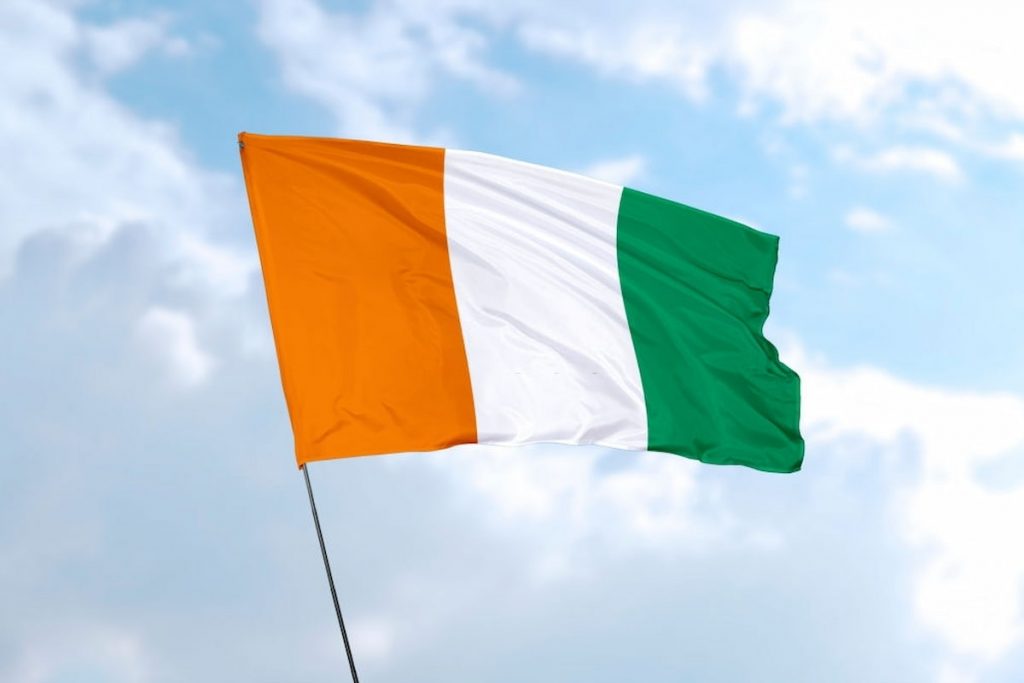
The flag of Ivory Coast features three colors: orange, white and green (from left to right), which is easily confusing with the flag of Ireland.
Symbolism:
Orange: The savanna and national development.
White: Peace and unity.
Green: The forests and future hope.
📜 Adopted: 1960 (Independence from France)
On August 21, 1959, the flag was officially adopted when Ivory Coast became an independent nation following its separation from French West Africa. Although green appears at the fly end of the national flag, it’s worth noting that this color has a lot of significance for Ivorians. It symbolizes Islam (the religion practiced by many people in West Africa), so it can be found on many Ivorian flags, banners, and souvenirs. Moreover, the green recalls the Eastern Guinean forests, which generated the first source of prosperity for the country.
✅ Quick Comparison
Country | Stripe Direction | Color Order | Region |
|---|---|---|---|
| Ireland | Vertical | Green – White – Orange | Europe |
| Ivory Coast | Vertical | Orange – White – Green | West Africa |
#3 - Indian Flag: A Horizontal Green White Orange Flag With a Twist
🟧⬜🟩 Horizontal — Saffron | White (Ashoka Chakra) | Green
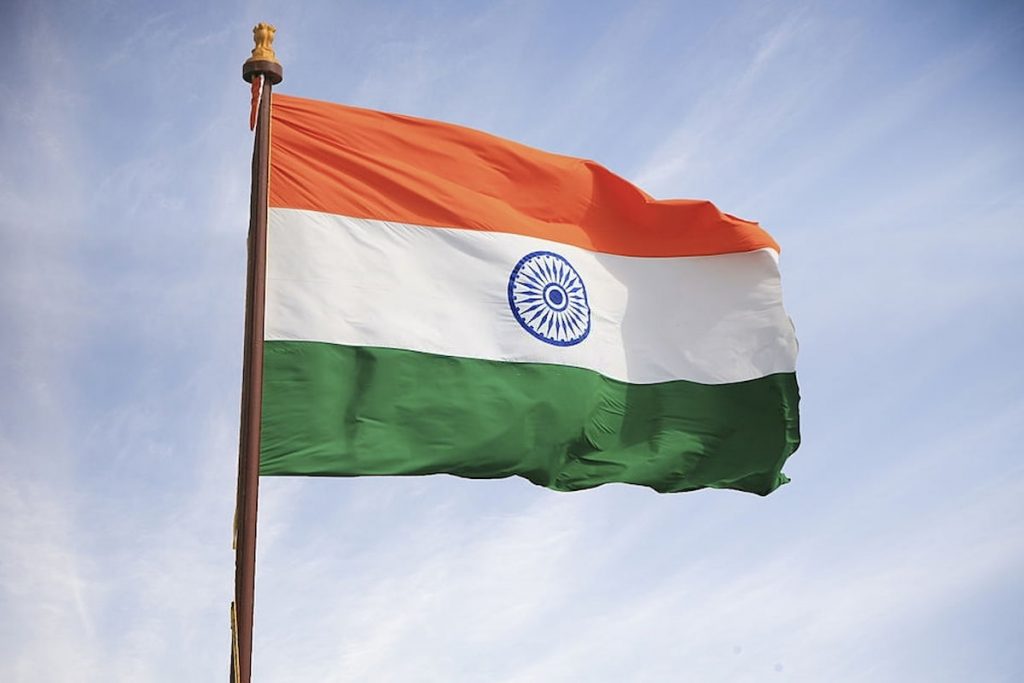
India’s flag includes the same three colors but adds a navy blue Ashoka Chakra in the center of the white stripe.
Symbolism:
Saffron (Orange): Courage and sacrifice.
White: Peace and truth.
Green: Fertility and growth.
Ashoka Chakra: The eternal wheel of law.
📜 Adopted: 1947, following independence
The Ashoka Chakra in the center symbolizes eternal progress and the importance of righteous living. This wheel ties the flag to India’s rich history, culture, and spiritual values.
#4 - Flag of Niger
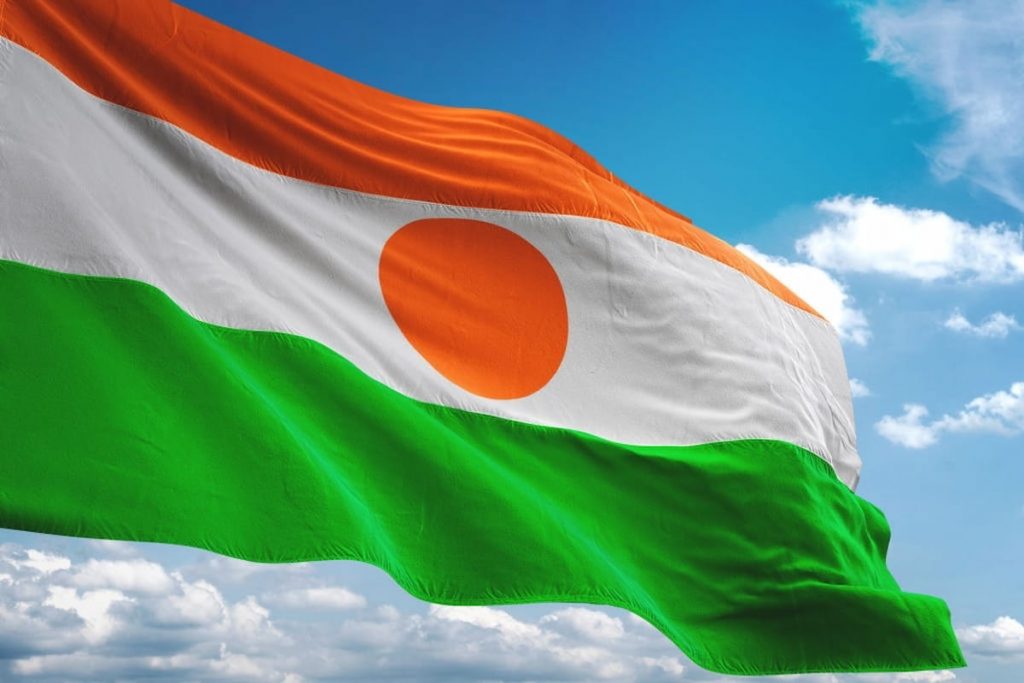
The flag of Niger, adopted on November 23, 1959, features three horizontal stripes—orange, white, and green—with an orange sun disk in the center.
Symbolism
- Orange: Represents the northern Sahara Desert.
- White: Symbolizes peace and purity.
- Green: Stands for hope and the country’s fertile regions.
Orange Sun Disk: Represents unity, diversity, and sovereignty.
The flag reflects Niger’s unique identity and its people’s connection to their environment.
🏳️ Other Flags That Look Like the Green White Orange Flag
Flags with green and white or similar tricolor designs are surprisingly common. Let’s take a quick look at some flags that often get mistaken for one another:
🟩⬜🟥 Hungary
Horizontal stripes: red, white, green
Very similar to green white red flag horizontal keywords
🟩⬜🟦 Sierra Leone
- Green, white, blue horizontal stripes
Matches searches like flag green white and blue
🟩⬛⬜ Nigeria (Simplified)
Technically just green and white, but some flags display variants in other formats.
Use this for green and white flag or green white flag queries.
🟩⬜🟨 Central African Regional Flags
Some variations include green, white, yellow, or even orange depending on tribal or regional flags.
Matches green white yellow flag and white yellow green flag.
Green, White, and Orange Flags with Symbols
Flags often include symbols in the center to convey deeper meanings or to represent specific cultural or historical identities. Here are some examples:
1. Irish Republic Flag (Easter Rising 1916)
During the Easter Rising, a pivotal moment in Irish history, rebels used a version of the Irish Tricolour with the words “Irish Republic” written in the center. This flag symbolized their declaration of independence from British rule.
2. Cultural and Regional Adaptations
In Ireland, cultural organizations and sporting groups often use variations of the tricolour featuring family crests, Gaelic symbols, or other emblems. These adaptations reflect pride in Irish heritage and are especially popular during St. Patrick’s Day parades and festivals.
🌈 Why Do So Many Flags Use Green, White, and Orange?
These colors are deeply symbolic across cultures:
Green: Growth, hope, fertility, agriculture
White: Peace, truth, unity
Orange: Courage, energy, sacrifice, tradition
That’s why you’ll often see combinations like green white red, green white blue, or green white yellow in national flags around the globe.
Symbols as Expressions of Identity
Adding a symbol to a flag personalizes it and deepens its meaning. For example:
- The Ashoka Chakra on India’s flag emphasizes eternal progress and justice.
- The orange sun disk on Niger’s flag reflects unity and the nation’s identity.
- Text and emblems on Irish flags during historical events, like the Easter Rising, tie the flag to a specific moment in time.
These symbols help distinguish flags with similar colors and connect them to unique stories.
❓FAQs – People Also Ask about green white orange flag
1. What flag is green white and orange with vertical stripes?
Ireland and Ivory Coast both use vertical stripes. Ireland starts with green, Ivory Coast with orange.
2. Which flag is green white and orange horizontally?
India uses horizontal stripes with a blue wheel (Ashoka Chakra) in the center.
3. What’s the meaning behind the green white orange flag of Ireland?
Green = Catholics, Orange = Protestants, White = peace and unity between the two.
4. What other flags have green and white?
Examples include Nigeria (green and white), Sierra Leone (green, white, blue), and Algeria (green and white with a red crescent).
🔚 Wrapping Up the Green White Orange Flag Mystery
There you have it — the green white orange flag isn’t just one country’s symbol. It’s shared by Ireland, Ivory Coast, and even reflected in India’s design — each with its own rich history and distinct symbolism.
Next time you see these colors flying proudly, you’ll know the story behind them — and hopefully won’t confuse Ireland and Côte d’Ivoire again! 😄
🧭 Suggested Reads:
We hope this post has provided you with the information you need. If you are interested, explore more decorative flags and home decor items at Flagwix.com now
Thank you for reading, and have a blessed life!
Ready for the upcoming patriotic holidays? Check our collections and find something great!
St Patrick’s Day Flag | Memorial Day Flag | 4th of July Flag | 9/11 Flag
FLAG CARE TIPS:

I have dedicated my career to unraveling the captivating stories behind these symbolic emblems. With a deep fascination for history, culture, and symbolism, I explore the stories behind each flag, weaving together narratives that celebrate their uniqueness and global significance. Join me on this enthralling journey to uncover the mysteries and intricacies of flags from around the world.
